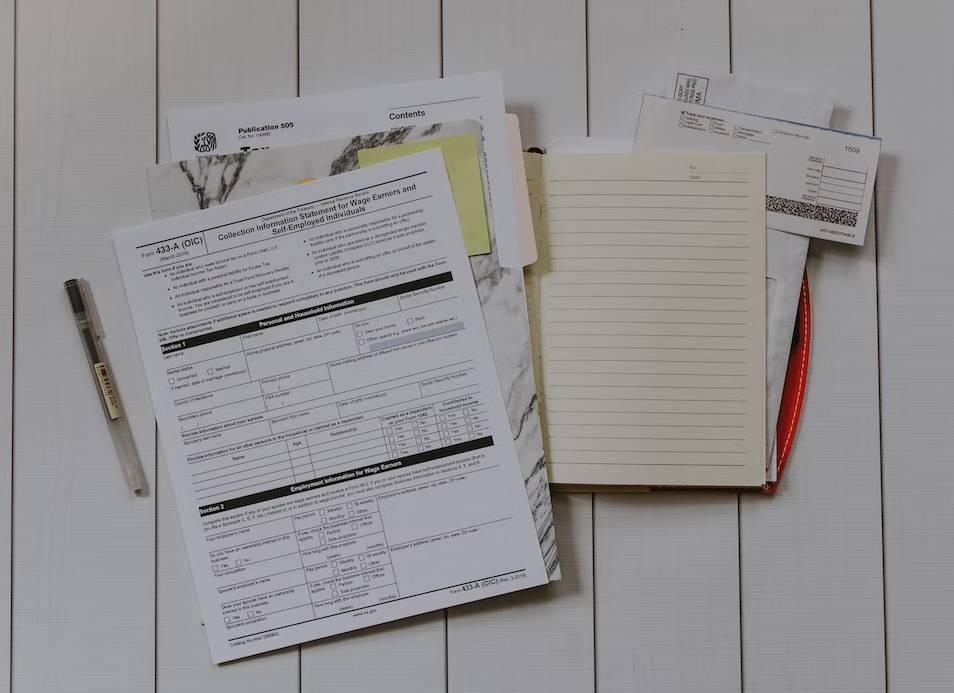
The mortgage underwriting procedure begins when the seller accepts your offer to buy a house. You may contact your lender, who will gather the required documents and submit your loan package to the underwriter.

If you're looking to purchase a home or want to be knowledgeable about the process, here's what you need to know about applying for a mortgage.
Mortgage underwriting is a lender's process to determine whether to approve or deny a loan application. The underwriter will consider the loan amount, credit history, employment history, and assets to decide if you're eligible for the loan.
The underwriting procedure confirms that you, the borrower, can make consistent mortgage payments. The lender's underwriter will analyze your application and finances.
To ensure consumers are treated equitably and transparently, mortgage lenders must adhere to specific standards the Consumer Financial Protection Bureau (CFPB) sets. Lenders use a rigorous approval process to protect their interests and the borrowers before they can fund a loan. Doing so decreases harmful practices within loans.
Underwriters are a critical piece of the mortgage lending puzzle. They're experts at determining your financial status to determine how much risk a lender would take on if they grant you a loan. "The company that underwrites the mortgage will follow the rules established to safeguard you from taking out a loan you can't afford and has the authority to refuse the loan if they find it appropriate."

"A mortgage underwriter will evaluate a credit application for a possible borrower, the preeminent advocate for the business in California's biggest mortgage and real estate market. The following will be reviewed as part of this process:
Your income.
Debt-to-income ratio (DTI).
Credit score.
Assets such as investments and bank accounts.
The value of the home you plan to purchase.
Income: The mortgage underwriter will review your pay stubs or tax returns to verify your stated income.
Debt-to-Income Ratio (DTI): The DTI is a ratio that compares your monthly debt obligations to your monthly income. Lenders use it to determine how much house you can afford. A high DTI may indicate to the lender that you are a higher-risk borrower.
Credit Score: Your credit score is a number that represents your creditworthiness. Lenders use it to determine whether or not you qualify for a loan and, if so, what interest rate you will be offered. A high credit score tells the lender you're a low-risk borrower.
Assets: The mortgage underwriter will review your bank statements and investment accounts to verify your stated assets. They will also consider the value of any property you own as equity in the home you are purchasing.
Home Value: The mortgage underwriter will review the sales contract and appraised value of the home you are purchasing to determine if it meets the guidelines set forth by the lender.
1) Completing the application – A lender's app, for example, might be the quickest method to apply for this sort of loan.

2) Processing your application – Your lender's processing staff examines your paperwork and requests the house appraisal and any other documentation required of the underwriter. The lender's processing of your paperwork ensures everything is in order before it goes to the underwriter. Your lender will contact you after submitting your loan application and may have questions to clarify the information you provided. An underwriter will review your loan package once all documentation is in order.
3) Mortgage underwriting – Your loan application will either be approved or denied based on the steps in this process. After you have received approval, your next step is the lender's closing department.

4) Closing – Ideally, after your loan has been approved, your lender will send the documents to your real estate attorney or title company as soon as possible. That way, you can review everything before closing. Before closing, ensure that all of the numbers on the closing disclosure are accurate.
The time it takes to complete a mortgage underwriting differs depending on how bogged down lenders are and how often housing sales occur. On average, it could take two weeks to 45 days.

Here are four of the most common reasons why lenders refuse to offer mortgage financing:
1) LTV is too high: The loan-to-value ratio (LTV) compares the loan amount to the home's appraised value or sales price. A higher LTV ratio represents more risk to the lender and may result in a denied mortgage application.
2) DTI is too high: Your debt-to-income (DTI) ratio compares your monthly debts, including your new mortgage payment, to your monthly income. A higher DTI ratio represents more risk to the lender and may result in a denied mortgage application.
3) Poor credit score: A low credit score indicates to the lender that you're a higher-risk borrower, which could lead to a denied mortgage application. Lenders prefer to see a credit score of 580 or higher. If your credit score is below 580, you may need to improve it before applying for a loan.
4) Lack of employment history: If you don't have a long enough employment history or if you've recently changed jobs, this could lead to a denied mortgage application. Lenders prefer to see at least two years of work experience. You may need to provide additional documentation to prove your income if you're self-employed.

Though some aspects that relate to the mortgage underwriting process are out of your control, there are ways you can increase the chance of a Hustle-free experience.
If you're perplexed by home-buying jargon or underwriting steps, don't be afraid to ask your real estate agent or lender questions. Also, notify them as quickly as possible if you suspect a problem with your paperwork. If the underwriter requests further information, return whatever requested documents and sign any necessary declarations. Don't make last-minute purchases or get credit applications approved until you've thoroughly reviewed your finances, and don't deposit significant amounts of money. Paying your rent mortgage on time is crucial, but you must also keep up with the minimum monthly payments for any consumer debt. It will help avoid late or missed payments.
Avoid potential headaches by ensuring you're stable financially before starting the mortgage process. A good amount of money, a reliable income, and a great credit score will help your application go over smoothly. If the underwriter gives you the go-ahead, your mortgage lender will be able to assist you in obtaining a home loan. Plan and anticipate the unexpected.


Jan 24,2025

Nov 27,2022

Nov 20,2022
